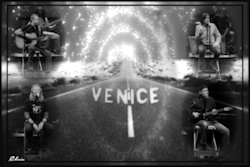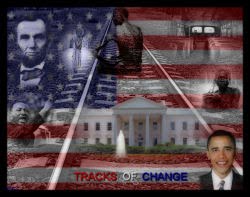Recently the activity center for people with disabilities I attend weekly had an outing to a local theater. One of the center’s volunteers invited us to a comedy she was in. The performance was not a play but a bunch of comedy skits they had put together.
We were transported by our usual taxi service that brings us to the activity center. My van was one of the first to arrive so I was able to choose where I positioned my wheelchair as the seats in the theater were chairs that could be moved as needed. Naturally I chose what I thought was the front row and held the spot to the right of me for my friend.
A blind woman I knew sat in the chair to the left of me. My friend soon came thereafter and there was very little room for anyone else near us. Just when we were settled in two things happened: First the theater crew asked us to move forward so there would be an aisle behind us for the performers to walk through during the show. Second, while we were doing this, the sister of the blind woman who uses a manual wheelchair and is also blind, asked to be seated next to her sister. As we were repositioning ourselves an employee of the center squeezed the wheelchair of the woman next to her sister. As a result, there was no longer room for both me and my friend. One of us now had to sit elsewhere.
I completely understood that the two sisters wanted to sit next to each other but was at a loss as to why two blind people had to sit in the first row. They couldn’t see what was taking place on stage but certainly didn’t have trouble hearing. Did their inability of not seeing give them the need to sit in the first row because they now had to rely more on their sense of hearing? Compensation of senses is something common so when sight is gone - hearing and smelling becomes much stronger.
This brought to mind a quote of one of my son’s favorite performers - ventriloquist Jeff Dunham, “You don’t take the blind to see David Copperfield.” His comedy sketch with his puppet Peanut brings up some serious things to consider.
When blind people go to the theater or more commonly, the movies, they need someone to sit next to them and explain what is being performed. Of course talking during a performance is prohibited and therefore cannot take place. This got me wondering why there can’t there be a special area for people who are blind or have poor eyesight. Given the century we are in and the technology available is there no way to construct something so whispering in the last row would not be a disruption?
Jeff and Peanut also tell the story about a group of deaf people who came to see their show. “Everyone was facing us but there was one guy who was facing the other way waving his hands moving his fingers. He was a signer!! Think about this for a second - they brought a bunch of deaf people to see a ventriloquist!”
Deafness is the easier disability to compensate for in theaters because signing makes no sound. Why then isn’t there a system where when purchasing tickets, someone with a hearing disability can request a signer be present. Is it really too distracting to have a person stand at the corner of the stage or has no one ever seriously considered the needs of the deaf?
The mass media doesn’t even have a way for those who can’t hear to watch television or enjoy going to the movies. Does it really too costly to have a signer appear in the corner of the screen? Since not everyone who has trouble hearing knows sign or can read lips, another solution is to provide subtitles. If subtitles can be used on DVDs for those who don’t understand the language then why can’t they appear at the bottom of our televisions?
All this would be the norm in a perfect world - a world in which those with sight and hearing disabilities are taken into consideration and not just given a ticket discount.
Friday, March 5, 2010
Subscribe to:
Posts (Atom)











